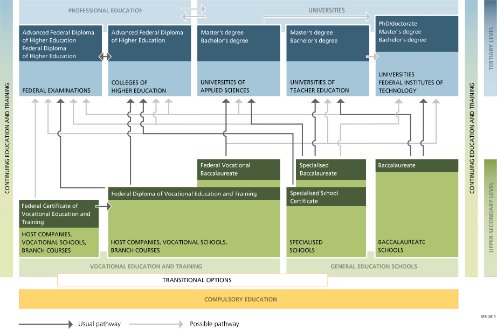Apprenticeship and Vocational Training: How companies benefit

(Contributed by aprentas)
Apprenticeship and vocational training are central tenets of entrepreneurial sustainability and ultimately of a company’s success. Particularly in the field of life sciences, but in other occupational sectors as well, aprentas, an apprenticeship association specializing in scientific, technological and commercial occupations, is your partner of choice. In cooperation with main funding partners Novartis and Syngenta, and with more than 70 corporate members in total, aprentas is currently training 500 apprentices in 15 different occupations.
Why aprentas?
Companies training their apprentices in cooperation with aprentas save a lot of time and manhours for their staff: Apprentices do not spend their initial months in-house on the job, but are trained at and by aprentas until they know their nuts and bolts, as well as the theoretical basics. When they’re ready to join the in-house workforce, they are easily integrated into operations and processes and start being productive at once. In addition, aprentas is in charge of teaching and implementing company-specific educational objectives, and also offers companies support in administration and relations to government and authorities.
Given aprentas’ high-quality planning and training approach, apprentices of aprentas member companies are consistently scoring above average in job efficiency and success in every occupational category on offer. aprentas coaches and trainers are intimately familiar with market realities and requirements on the ground and are thus well-positioned to convey techniques and knowledge both up-to-date and in high demand. aprentas is also routinely in charge of collaboration and coordination between business operations and technical or vocational schools. This allows for early detection of potential problems and extraordinary talent alike, and to individually support, promote or coach apprentices according to their personal needs.
Vocational degree: Specializing in the Life Sciences
aprentas offers the best of both worlds in the Swiss dual education system, paving the way for apprentices to enter the workforce and continue their academic education at the same time. For scientific occupations such as laboratory technician (EFZ-certified, a Swiss Federal Competence Certification), specializing in biology or chemistry, as well as chemicals and pharma technician (also EFZ-certified), aprentas has established and runs a vocational school with an integrated final vocational certification for the field of life sciences. Here apprentices in lab occupations enjoy the advantage to earn a professional vocational degree while accomplishing their apprenticeship. Within a mere three years, not only do they complete their apprenticeship, but they also earn a professional vocational degree or certification which allows them to seamlessly transition into a technical college or university of applied sciences.
Continuing education
In addition to elementary apprenticeships and vocational school, aprentas also offers several options in continuing education. These courses and seminars in higher vocational education are open to candidates with a completed apprenticeship but without a professional vocational degree. Furthermore, aprentas is offering custom-designed coursework that answers to company-specific coaching and educational needs. Several additional educational services and more general commitments to professional and vocational training in general complement the portfolio of professional services offered by aprentas.
Innovation made by vocational training
A study by the University of Zurich from the fall of 2019 drew the following conclusion: «Vocational training yields an essential contribution to innovation in Switzerland». Equipped with a broad range of professional expertise and the necessary soft skills, vocational trainees are flexible and agile professionals who are more than ready to help develop and boost innovation in businesses, the study claimed. Accordingly, companies offering apprenticeships prove to be more innovative than those without training and coaching options for apprentices. As professional and academic skills are essentially complementary, businesses with a broad range of mixed skills have a competitive edge over companies with a merely academically trained staff, according to the study. Together, professionals with completed apprenticeships, vocational certificates and degrees of technical colleges and universities are all contributing to a more versatile and ultimately superior skill mix.
A certificate is just the beginning: Vocational education in Switzerland
Once they complete their compulsory education, two thirds of Swiss youth opt for a professional apprenticeship. Swiss vocational education, however, is part of a larger education system that has the crucial advantage of permeability: It opens doors for more. In practice, this means that after graduating from secondary (or middle) school, students have two options to continue their professional formation and/or academic education: either with a high school degree (equivalent to a baccalaureate) or by completing a basic vocational school certificate, which is to say: an apprenticeship. After completing an apprenticeship and earning a degree, such as a federal diploma at a professional vocational school, young professionals have additional options to start studying at institutions of higher learning at university level and eventually access to the entire range of possibilities at the tertiary educational level, as shown in the illustration below.

